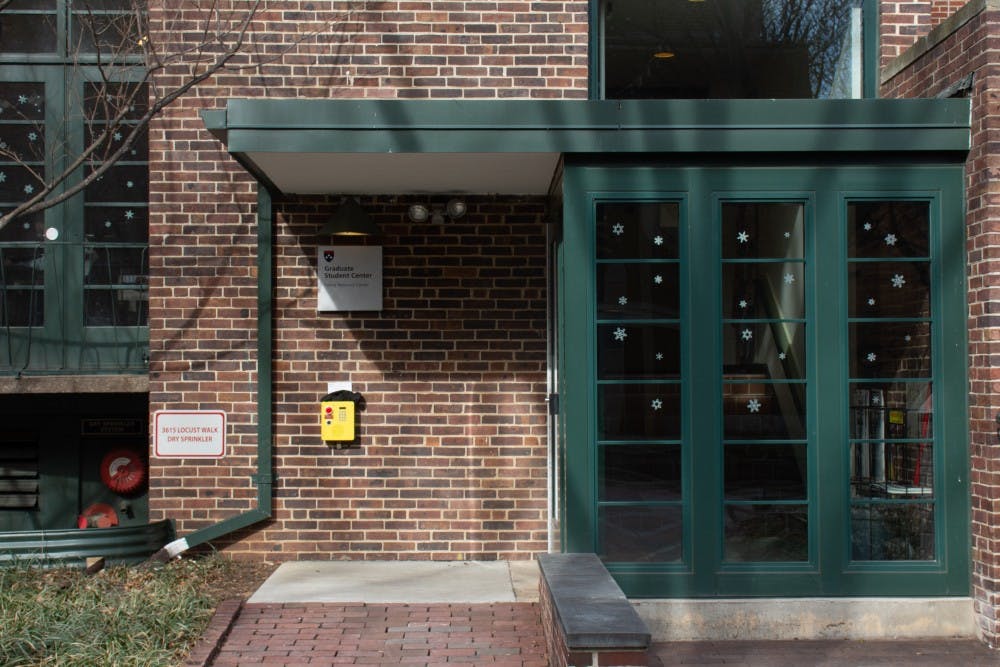
The idea for a coalition tackling sexual misconduct came from a panel hosted by The Graduate and Professional Student Assembly’s Sexual Harassment Reform Committee, titled “#AcademiaToo: The Impact of Sexual Harassment in the Academy.”
Credit: Claire ShinPenn graduate students have started a new organization to combat sexual harassment in academia.
The organization, called the Coalition Against Sexual Misconduct, hopes to involve students and staff across the Penn community. The coalition's mission statement said it aims to “advocate for protections, policies, and a cultural shift surrounding sexual harassment and misconduct."
“We chose to be a coalition because we want to think about the ways that sexual harassment and misconduct happen in all of the different spaces at Penn; because it happens in undergraduate spaces very differently from graduate spaces,” said fifth-year Graduate School of Education Ph.D. student Jennifer Phuong, one of CASM's student leaders.
The sexual harassment committee under Graduate Employees Together — University of Pennsylvania, the graduate student union advocacy group, inspired the formation of new coalition. The GET-UP committee, of which Phuong was a member, led a yearlong campaign for the improvement of the sexual harassment policy. Their efforts led to the establishment of a new centralized office for sexual misconduct investigation.
The idea for a coalition tackling sexual misconduct came from a panel hosted by the Graduate and Professional Student Assembly’s Sexual Harassment Reform Committee, titled “#AcademiaToo: The Impact of Sexual Harassment in the Academy.” This panel brought faculty members and graduate students together to discuss the impact of sexual harassment among Penn’s graduate community.
One major issue the coalition wants to tackle is the lack of a united graduate student movement against sexual misconduct. 
CASM is still a fledgling coalition, one that wants to inspire campus-wide, collective action. At this point, CASM leaders have met with different offices and groups at Penn who also focus on tackling issues of sexual misconduct, Phuong said. They are also speaking to staff members who can share their own experiences or wish to better serve students. As of now, they are focusing on learning about sexual harassment and its effects across campus, so that they can better address these issues.
“Within the graduate level, we’ve been having trouble finding groups that are doing explicitly this work. And so, that’s where we kind of see ourselves situated,” Phuong said.
The coalition has hosted events referred to as reading groups, where members read news articles and watch videos about sexual harassment issues at universities and then discuss them, Phuong said. They also wrote the sexual misconduct section of this year’s “disorientation guide” for graduate students.
One major issue the coalition wants to tackle is the lack of a united graduate student movement against sexual misconduct. This generally arises because Penn’s 12 graduate schools run very independently of each other, and each school has its own system for dealing with issues of sexual misconduct.
“That’s really what allows a culture of sexual misconduct and sexual harassment to flourish – the fact that no one outside of the specific department or institution or school that it’s happening in is aware of it,” said CASM member and second-year political science Ph.D. student Miranda Sklaroff.
Members of Coalition Against Sexual Misconduct felt as if none of their feedback was taken into consideration by Penn administration.
“We really want to start thinking about what sexual harassment becomes in all of these different departments and how does it get silenced and hidden because people don’t have chances to talk to each other,” Phuong said. “Each school has its own system that’s run really differently, and so that just makes it easier for Penn to mask what’s happening in those spaces.”
Members of CASM gave feedback to administration in Jan. 2019 in response to the proposed policy establishing a centralized sexual misconduct reporting office. The coalition annotated the policy together and sent comments to the administration, but felt as if none of their feedback taken into consideration.
“Since Penn is so siloed, even when we talk to administrators who might be really high up, when we ask them questions, like 'who was involved in making the decisions about the sexual misconduct policy; who was in the room?' high-level administrators can’t answer that question,” Phuong said.
CASM held their first meeting on Sept. 12. The discussion involved inherent power dynamics at the graduate student level, especially between advisors and students. Four administrators also attended the meeting, including Chief Wellness Officer Benoit Dube, according to an email from VPUL chief communications officer Monica Yant-Kinney.
Phuong said, however, it was clear from the meeting that the administrators and the group had different perspectives on how to effect change on campus.
The Daily Pennsylvanian is an independent, student-run newspaper. Please consider making a donation to support the coverage that shapes the University. Your generosity ensures a future of strong journalism at Penn.
Donate



